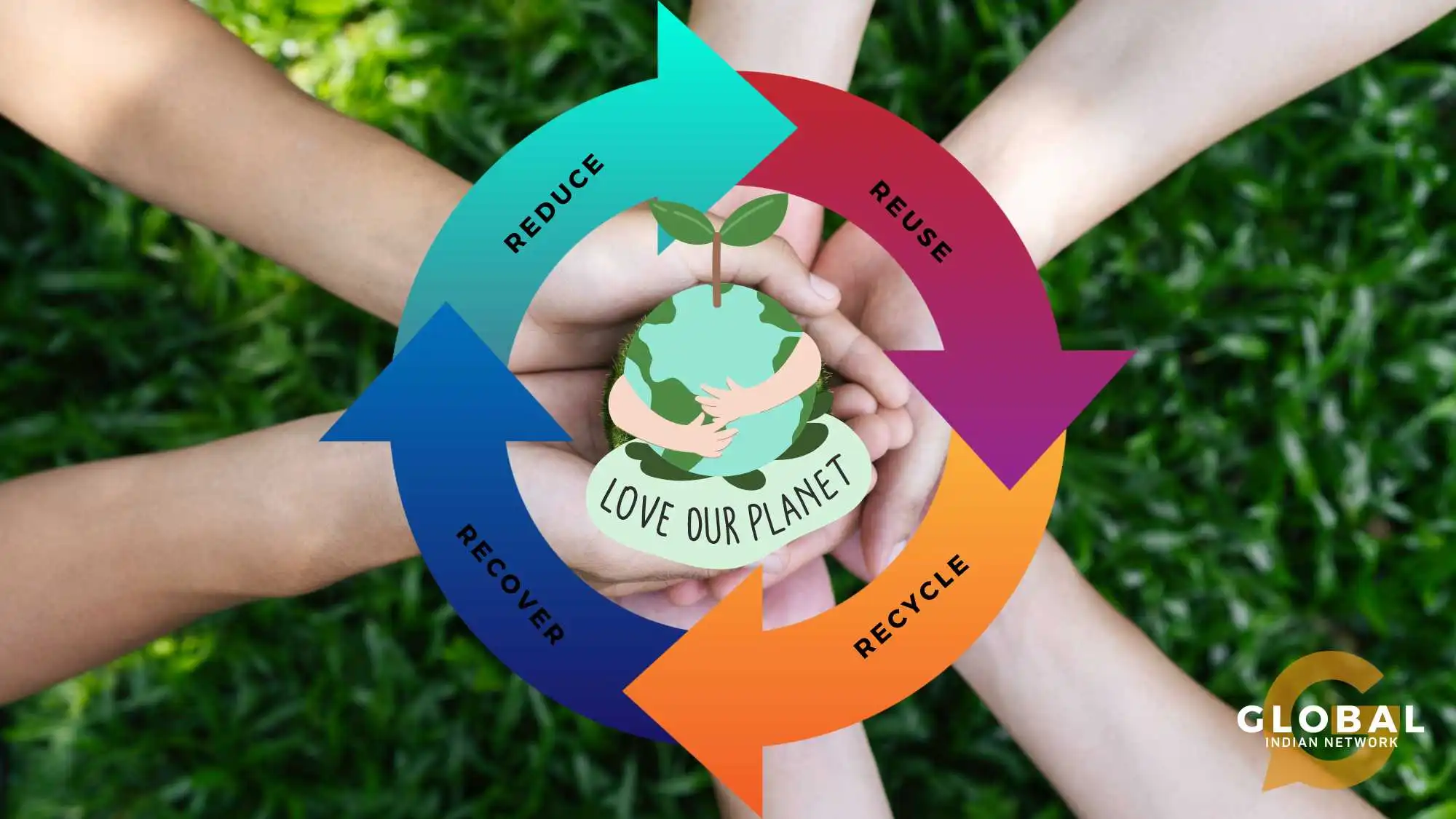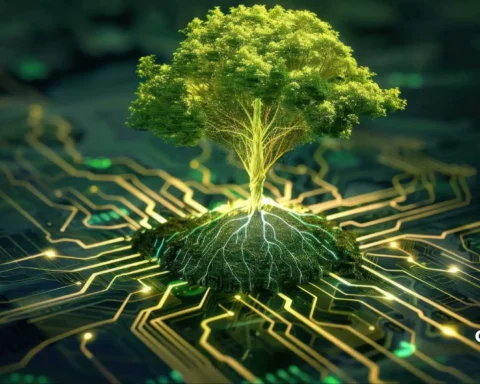Waste management is the most important issue in our daily lives. This is because waste is increasing daily, and health and environment-related issues are also in a pathetic situation. Therefore, it becomes vital to think of a sustainable way to manage waste and waste-related issues. And, to think of sustainable waste management, the 4Rs of waste management come as a solution.
Table of Contents
What is Sustainable Waste Management?
To put it simply, sustainable waste management can be defined as using resources in such a way that the activities of the present generation do not create a bleaker future for future generations. This can be achieved by making efficient use of resources and thereby reducing waste generation.
The 4Rs of Waste Management for a Sustainable Future
For a sustainable future, we must start not thinking but implementing waste management. With the daily increase in urban waste and the complexities in the type of waste, it is becoming necessary to update the waste management techniques as well. Therefore, there arises the need to rethink the 3Rs of Waste management: Reduce, Reuse, and Recycle.
Why is Waste Management Required?
Waste cannot be simply dumped on open grounds or in water because it would be detrimental to the environment. During the monsoon season, plastics often clog the drains. Therefore, before disposing of the waste, people need to have a clear idea about what happens to the waste and how to dispose of it.

What are the 4Rs of Waste Management?
Waste collection has increased daily, so collected wastes go through different processes. All wastes are not biodegradable. Therefore, non-biodegradable wastes need to be treated separately and carefully. Waste management consists primarily of three types: Reduce, Reuse, and Recycle.
However, a fourth addition has been made to the conventional 3Rs of waste management: ‘Restore’. Let us have a glance at the four Rs of waste management:
- Reduce: The main thrust of ‘reduce’ focuses on controlling consumption and using essential resources. It also means using resources that create less waste. To achieve this, one can reduce the use of packaging by using reusable cloth bags and reusable products.
- Reuse: Reusing waste means using the waste materials again for the same or different purposes. The principle of reuse can be achieved by repairing products or donating unwanted products. It simply means giving used products a second life.
- Recycle: The purpose of recycling waste is to process the waste materials to create new products. It gives a new life to products that cannot be reused. Recycling helps to conserve natural resources and reduce landfills.
- Recover: Even after following the 3Rs, that is, Reduce, Reuse, and Recycle, some waste remains untreated and unused. Therefore, the need for the fourth R, which is Recover, arises to extract value from the remaining waste. In the process, recovering waste means avoiding the use of products that are non-essential and have a drastic environmental impact. One should avoid using single-use plastic and use renewable sources of energy.
In some contexts, the fourth R’s connotation varies, as it denotes ‘Refuse’ and ‘Restore’ as well as ‘Recover’. Whatever the context, the fourth R’s essential meaning and principle remain the same.
Importance of 4Rs in Sustainable Waste Management
After learning about the 4Rs of waste management, let us know why it is important to follow these four steps to achieve sustainable waste management.
- It is an effective strategy that everyone can use. In addition to recycling, which requires recycling plants, the principles of reduce, reuse, and recover can be applied in domestic and commercial places.
- The principles of the four Rs help us use our resources cautiously and offer a simple path to a cleaner and greener future.
- Following this sustainable waste management policy reduces the waste generated by our daily activities and increases the value of our resources.
- The 4Rs of waste management are not a choice but necessary when the earth is reeking.
- By adopting the 4Rs of waste management, we are thinking about ourselves and safeguarding our planet from further depletion. As human beings, we have a responsibility to future generations, and therefore, by adopting this process of sustainable waste management, we can ensure a safer future.
Challenges of Sustainable Waste Management
4Rs of Waste Management is the only solution for a sustainable environment but is also fraught with challenges. These are:
- The first challenge that remains in the case of sustainable waste management is inadequate public awareness. Despite provisions being made to spread awareness, people do not bother to pay heed that they are burying their graves.
- The training and the systems that are required for sustainable waste management remain at a nascent stage.
- There is a lack of professionals to handle waste management, especially in countries like India, where poverty is a barrier to achieving development in an equal sphere.
- Inadequate budgets for waste management resources and recycling plants and lack of proper funding for waste management programs are some of the main challenges.
- Due to inefficient waste collection and transportation, the waste accumulates in landfills.
- Despite having a sound knowledge of the 4Rs of waste management, people’s carelessness about implementing the segregation of waste makes it cumbersome for waste collectors to effectively manage waste.
Is the Sequence of the 4Rs of Waste Management Important?
After learning about the challenges of waste management, it is important to know that sustainable waste management is a necessity and not a choice. Therefore, understanding and following the sequence of the 4Rs of waste management is important. The initial and first step before everything in waste management is to reduce.
Reducing the use of products that cause waste can prevent environmental degradation. By reusing products, we can reduce the chance of waste accumulation or its scope of recycling. Therefore, before recycling and recovering, one should always apply the first two Rs of waste management.
RELATED:
- The Future of Clean Cities is Here: Smart City Waste Management Leading the Way
- Agri Waste Management: The Easy Guide to Reducing Your Environmental Impact
- E-Waste Management in India: Building a Responsible Future
- The Future is Green: Innovative Waste Management Companies in India
- The Secret Weapon for Sustainable Living: Classification of Solid Waste
- Master Recycling: Understanding What Is Dry Waste And How To Sort It
- What is Meant by One Planet Living and How to Apply It?
- Plogging for a Cleaner India: Tackling India’s Litter Crisis with Ripu Daman Bevli
- World Environment Day Special: A Voice for Change with Ridhima Pandey
Conclusion
Sustainable waste management is the need of the hour, and the 4Rs of waste management are viable ways to manage waste. Given the complexity and increasing urban waste, this remains the easy solution. Though there are many challenges, all can be fraught if people come together to fight in this united mission of achieving a sustainable and green future. Together, through the process of the 4Rs of waste management, which are Reduce, Reuse, Recycle, and Recover, it will not be impossible to achieve our collective mission.

FAQs
What do the 4Rs stand for?
The 4Rs in waste management stand for Reduce, Reuse, Recycle, and Recover.
Why are the 4Rs important in waste management?
The 4Rs are important in waste management because they are the systematic and simple processes through which we can achieve a sustainable environment.
What are the examples of 4Rs?
Examples of the 4Rs are reducing the use of packaging, reusing unwanted products by donation, recycling plastic bottles for planting saplings, and recovering, which can be implemented using renewable energy sources.









